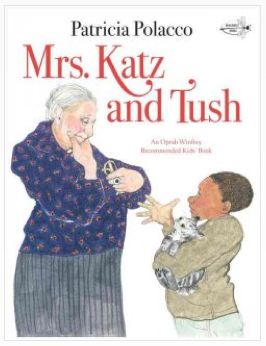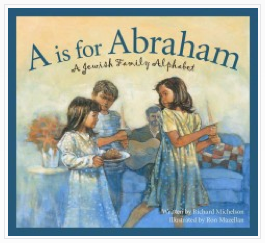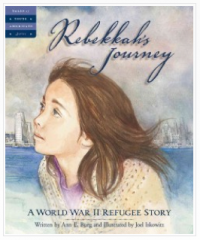Choosing books for Christmas is always a delightful experience. There are many from which to choose, so when selecting a book I ask myself how many things I might share with the children when we read this book. There needs to be more than the fun, excitement, and joys of the season. This helps me eliminate some and treasure others.
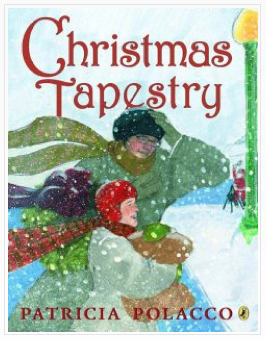 The Christmas Tapestry
The Christmas Tapestry
by Patricia Polacco
One of my favorites is Patricia Polacco’s Christmas Tapestry. This story begins with the question that many children and adults both ask, “Why did God…?” Jonathan Weeks, a pastor’s kid, finds himself in Detroit, Michigan, where his father has taken the call to a new church, and asks his dad this age-old question. Who has not asked that question at some point? Yet, before the story ends, Jonathan and his family see how the Lord has woven a tapestry that is beautifully crafted to touch the lives of Jonathan, his family, and others in significant ways.
Lesson #1
God has a plan and we need to trust and walk obediently
When a blizzard hits Detroit, Jonathan and his father discover the church’s sanctuary has been damaged by snow and ice, the car won’t start, and waiting for a bus is bitterly uncomfortable when it is cold and snowing. This combination prompts a trip to town where they find a beautiful tapestry to hang over the damaged wall in the church, and meet an old woman who offers them hot tea. Father and son are shocked to learn that Rachel, the woman, created the tapestry as her chuppah many years earlier as a young bride in Germany. However, the real surprise comes a day later when the plasterer—who arrives to repair the wall— recognizes the tapestry as the one his bride made before they were separated and taken to Nazi concentration camps. Their reunion, so many years later, is the celebration that is well beyond a Christmas joy.
Lesson #2
The horror of the Holocaust
These lessons can be enhanced with additional children’s books. A wonderful story of the wedding chuppah is an integral part of Patricia Polacco’s The Keeping Quilt. The appliques on this quilt are family pieces, and the quilt has been used as the wedding chuppah for generations. Polacco includes this artifact in Mrs. Katz and Tush when Mrs. Katz describes her wedding chuppah. The chuppah has wonderful significance in each of these stories, and is a symbol of the banner of God’s love. Jewish history and customs enter into this story, as well as others. A is for Abraham: A Jewish Family Alphabet by Richard Michelson is a wonderful introductory piece for children to learn of these many special traditions.
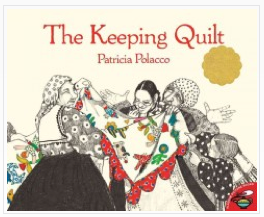 The Keeping Quilt The Keeping Quiltby Patricia Polacco |
|
|
The events of the Holocaust are important for children of the 21st century to understand. Some people survived the Holocaust by escaping or by being released at the conclusion of the war. Others did not survive and are remembered today with regrets. There are excellent books that describe this tragic time in history. Number the Stars by Lois Lowry offers an account of a brave girl in Denmark who faces danger to rescue another. Similarly, The Butterfly by Polacco describes the events in France at the same time period, and Shulamith Levey Oppenheim reports these events in Holland in The Lily Cupboard. There were those who were able to leave Europe without being imprisoned there, but faced difficulties elsewhere, as in Rebekkah’s Journey: A World War II Refugee Story by Ann E. Burg. Bold attempts to protect the Jews are told in The Yellow Star: The Legend of King Christian X of Denmark by Carmen Agra Deedy and Passage to Freedom: The Sugihara Story by Ken Mochizuki. Choose from among these books to help readers of Christmas Tapestry understand the depth of fear and persecution that the Zukors—the old woman and her long-lost husband—faced, and thus the height of their joy when reunited.
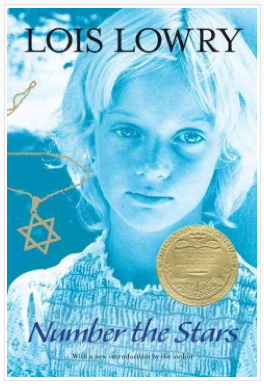 Number the Stars Number the Starsby Lois Lowry |
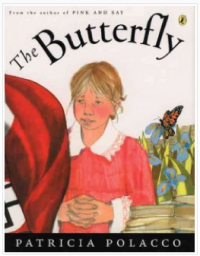 The Butterfly The Butterflyby Patricia Polacco |
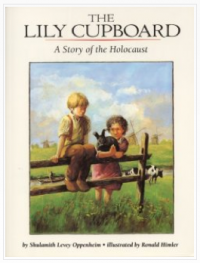 The Lily Cupboard The Lily Cupboardby Shulamith Levey Oppenheim |
|
|
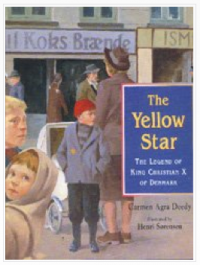 The Yellow Star The Yellow Starby Carmen Agra Deedy |
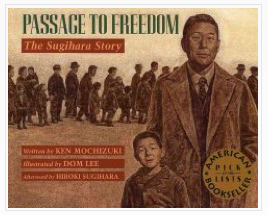 Passage to Freedom Passage to Freedomby Ken Mochizuki |
Following the war, there were stories of others like the Zukors who survived. For older readers, share Hiding to Survive: Stories of Jewish Children Rescued from the Holocaust by Maxine B. Rosenberg (out of print) or Surviving Hitler: A Boy in the Nazi Death Camps by Andrea Warren. These tell personal accounts of life changing events. For a similar story appropriate for younger readers, share Don’t Forget by Patricia Lakin (out of print) or Six Million Paper Clips: The Making Of A Children’s Holocaust Memorial by Peter W. Schroeder to help readers grasp the number of lives touched by this event.
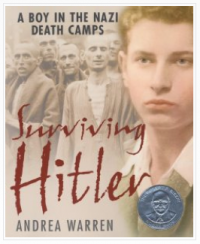 Surviving Hitler Surviving Hitlerby Andrea Warren |
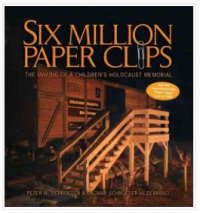 Six Million Paper Clips Six Million Paper Clipsby Peter W. Schroeder |
The Zukors immigrated to Detroit from Germany when they were released. Why Detroit? Explore the life of an immigrant with Russel Freedman’s Immigrant Kids. Although the time period of most accounts is earlier, the theme is beneficial to understanding the move to a new culture. The welcome to the USA is beautifully described in Emma’s Poem: The Voice of the Statue of Liberty by Linda Glaser. The account of this young Jewish author and her sonnet that became the words of welcome is a great addition when examining immigration.
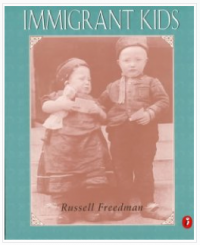 Immigrant Kids Immigrant Kidsby Russell Freedman |
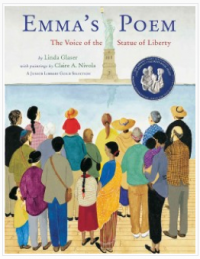 Emma’s Poem Emma’s Poemby Linda Glaser |
Polacco often will tell her audiences that it is the truth of the story that makes it worthwhile. The Christmas Tapestry, described as a “true story,” includes truths that are so important for our children. It can be read over and over, allowing the reader or listener to be struck with the sovereignty of God who orchestrates tiny details as well as immense events, and all for His glory. Read and rejoice with Jonathan and the Zukors who see God’s hand weaving a plan to bring joy to us and glory to Him.
Penny Clawson, Ed.D. Although a resident of Lancaster, Pennsylvania, for more than 30 years, Dr. Clawson’s roots in New York City still can be detected if you listen very carefully. Her unique mixture of metropolitan, suburban, and rural experiences brings a varied perspective on life, Christian education, and the Lord. Penny grew up in New York City, attended college in center city Philadelphia, and then taught in York, Pennsylvania, at the Christian School of York for 15 years before coming to Lancaster in 1983 to begin her ministry at Lancaster Bible College. Penny’s love for the Lord, His word, children’s books, and her students is evident in any venue.



